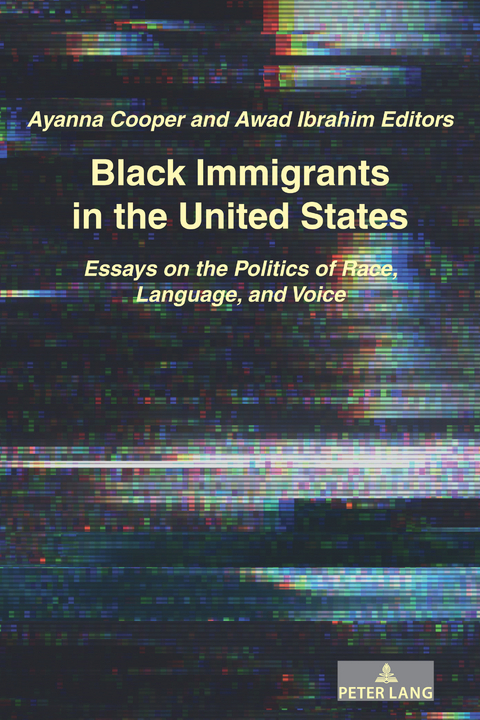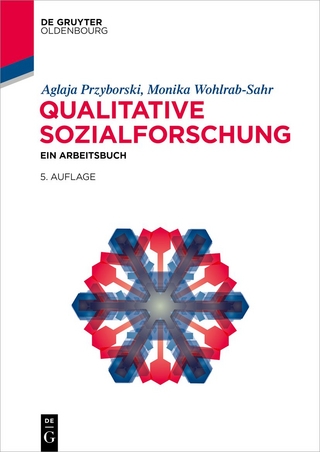
Black Immigrants in the United States
Peter Lang Publishing Inc (Verlag)
978-1-4331-7397-4 (ISBN)
In the United States, ‘immigrant’ is a complicated category. It is used interchangeably with ‘refugee’ and it is, most of the time, linked to South America, especially Latina/os. Black Immigrants in the United States is arguing that immigrants are not refugees and, whether coming from the Caribbean, Latin America or Africa, Black immigrants are oft-silenced in immigration studies and unsystematically researched. Being one of the first books on the topic in the United States, Black Immigrants in the United States is a crack, a verse in the syntax which links Blackness and immigration; a required reading for anyone who is interested in immigration generally and Black immigration in particular. For example, did you know that 12-13% of the statistically defined as African Americans are ‘Black immigrants’ (both immigrants and refugees) (Ogunipe, 2011)? Out of this 12-13%, did you know the first and second-generation constitute 41% of Black first-year students in Ivy League? Black Immigrants in the United States is an attempt to answer these questions and paint a picture for this population, where they come from, what languages and histories they bring with them to the United States, and discusses their challenges as well as their triumphs. With this book, as children of migration ourselves, we are turning researching and writing about Black immigrants into acts of love and reading about them into an expression of jouissance.
Ayanna Cooper is an author, advocate, keynote speaker, and owner of ACooper Consulting. Her projects involve providing technical assistance to state departments of education, school districts, and organizations with the goal of protecting the civil rights and improving outcomes for culturally and linguistically diverse learners. Awad Ibrahim is an award-winning author and a professor at the Faculty of Education, University of Ottawa, Canada. He is a Curriculum Theorist with special interest in cultural studies, applied linguistics, Hip-Hop, youth and Black popular culture, philosophy and sociology of education, social justice, diasporic and continental African identities, and ethnography.
List of Figures – List of Tables – Awad Ibrahim, Co-editor: Foreword – Acknowledgments – Ayanna Cooper, Co-editor: Introduction – Enzo Silon Surin: "Voyager" – Pedro A. Noguera: On Being Black but Not American: Bringing Politics Back to the Study of Race – Ayanna R. Armstrong: The Continuing African Journey to America: Continuity and Change: Struggles, Overcoming, and Celebrating – Amy E. Peliss ero/Mary Lou McCloskey/Teni-Ola Ogunjobi: Black Voices from the Global Village – Nimo Abdi/Bic Ngo: "No one wanted to play with me": Somali-American Students’ Memories of Racism in Elementary School – S. Joel Warrica n/Alex Kumi-Yeboah/Patriann Smith/Melissa L.Alleyne: Fostering Senegalese Immigrant Students’ Language and Literacy Learning Experiences and Academic Achievement – Enzo Silon Surin: "The South Bronx Breaks Its Own Heart" – Martha Bigelow: The Case of a Somali Teenage Girl with Limited Formal Schooling: Seeing Assets and Poking Holes in Deficit Discourse – Babatunji Ifarinu: Taking Control of the Narrative: Empowering Black Immigrants through an African-Centered Approach – Kisha Bryan: #BlackImmigrantsMatter: Preparing Teachers to Center Black Immigrant Youths’ Intersectional Identities through Activism and Education – Ebony Bailey: Documenting Blackness: Representations of the Haitian Community at the U.S.-Mexico Border – Isabella Alexander-Nathani: Trapped on the Island: The Politics of Race and Belonging in Jazirat al-Maghrib – Ayanna Cooper: Organizations that Support Black Immigrants in the United States – Afterword –Contributors – Index.
“What makes the Black immigrant and refugee experience unique? How does it feel to be a Black immigrant or refugee? How is being African American different from being a Black immigrant or refugee? This timely and relevant volume answers these and many more questions by capturing the diversity of Black immigrant and refugee populations. Conceived at the intersection of race, politics, language, culture, education, social justice, and immigration, this book provides a voice for a largely silent (and silenced) population and reveals its complexities in a variety of contexts. It bridges the gap between academia and the lived experiences of Black immigrants and refugees. By taking an inclusive, multidisciplinary approach, Cooper and Ibrahim broaden the focus on immigration to shine a much-needed light on this overlooked and misunderstood population. The result is an invaluable resource for educators and learners alike.”—Mary Romney, MA, MA, EdM, ESL Educator
| Erscheinungsdatum | 06.03.2022 |
|---|---|
| Zusatzinfo | 13 Illustrations |
| Verlagsort | New York |
| Sprache | englisch |
| Maße | 150 x 225 mm |
| Gewicht | 417 g |
| Themenwelt | Sozialwissenschaften ► Pädagogik |
| Sozialwissenschaften ► Politik / Verwaltung | |
| Sozialwissenschaften ► Soziologie ► Empirische Sozialforschung | |
| ISBN-10 | 1-4331-7397-2 / 1433173972 |
| ISBN-13 | 978-1-4331-7397-4 / 9781433173974 |
| Zustand | Neuware |
| Haben Sie eine Frage zum Produkt? |
aus dem Bereich


